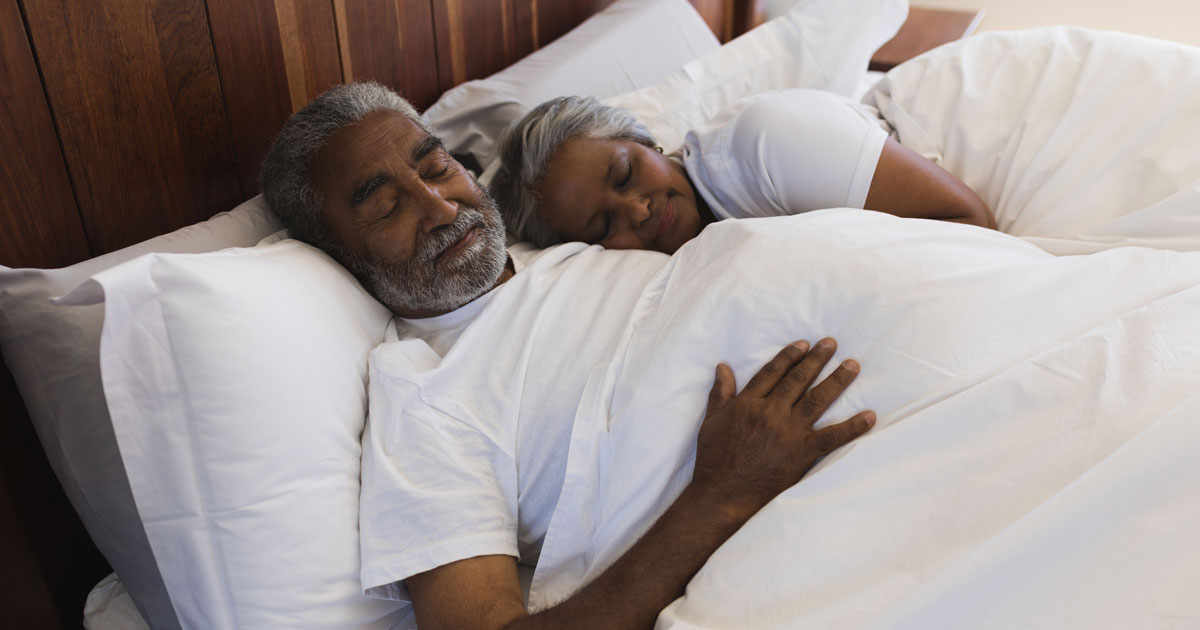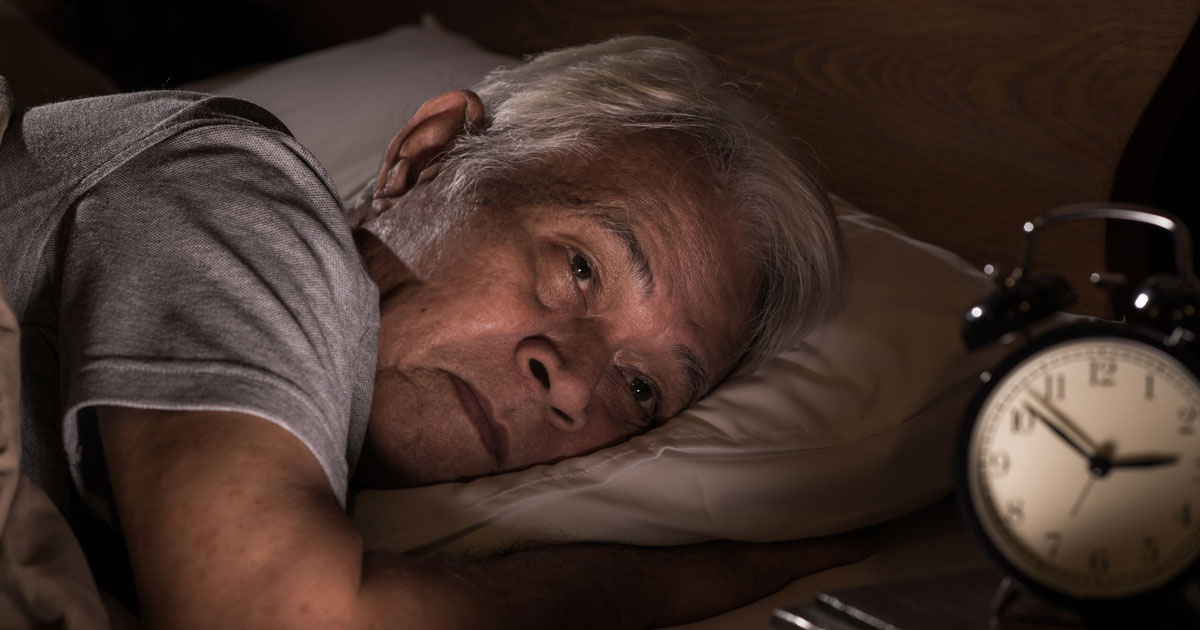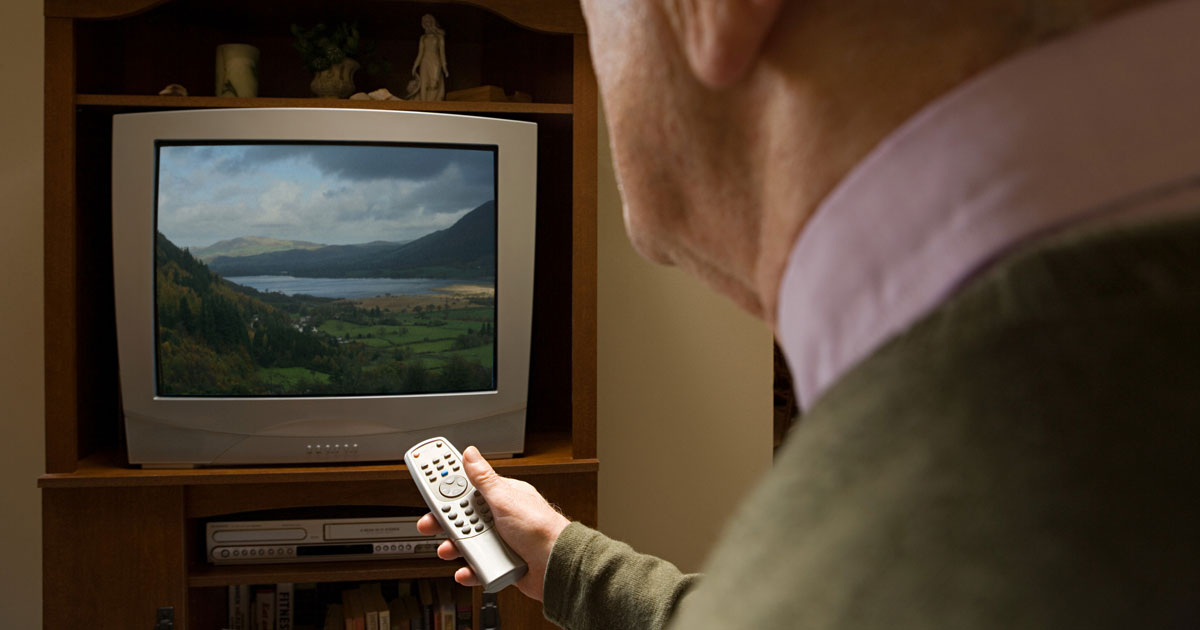
Having issues with falling and staying asleep can impact you at any time in your life, but there are changes to our sleeping patterns that come naturally with age. While many of these changes are an unavoidable part of growing older, there are several ways to combat the issues which lead to the elderly not sleeping at night.
How Sleep Changes With Age
Up to about 30% of adults face chronic insomnia, but by the time they reach the age of 55, the amount of people suffering from sleep problems is closer to about 50%. As you age, you tend to sleep less as well as less deeply, and are more likely to wake up throughout the night. Not only that, but you are likely to lose up to 30 minutes of nightly sleep with every decade that passes.
This difference in sleep quantity and quality can be a result of several different factors. Seniors have a higher risk of psychiatric or physical conditions that can cause sleep disruption, and also are at greater risk for developing restless legs syndrome and other common sleep disorders.
Outside of concurrent health conditions leading to sleep disorders, elderly adults also see changes in their sleep patterns as a result of the normal aging of their circadian rhythm. Seniors tend to experience less NREM and REM sleep, which leads to more trouble staying asleep and a lower quality of sleep in general. This can lead to you feeling less rested even when you do manage to sleep for a longer period of time.
Another common reason for sleep problems in seniors is simply side effects from concurrent medications taken for various common geriatric conditions. While some of the changes to sleep patterns are unavoidable as you age, that does not mean that it should be considered normal to have regular difficulty falling asleep and face regular daytime sleepiness.

Signs of Insomnia
While it can be hard to tell whether your sleep troubles are a result of you adjusting to new sleep patterns or a result of sleep disorders, it is important to pay attention to your sleep habits. By keeping track of your sleep duration and quality, as well as the consistency, of your sleep with a sleep diary, you will be more able to deal with the changes and their root causes.
There are a few signs of insomnia in seniors that you can look out for. Some of these may be fairly obvious to you, such as:
- Being resistant to going to sleep at regular hours
- Trouble falling asleep
- Trouble staying asleep
- Regularly waking up early
- Trouble sleeping without sleep medicine or assistance
While these are all signs of disturbed sleep, they are not always reflective of sleep disorders such as insomnia. Insomnia not only impacts your sleep itself, but also causes problems in your daily life as well. Some symptoms of insomnia you may face during the day are:
- Irritability and mood swings
- Feeling fatigued or suffering excessive daytime sleepiness
- Trouble focusing on surroundings and conversations
- More incidents of “clumsiness” and general decrease in motor control
- These are all signs of insomnia in the short term, and if the symptoms last for over three months, the condition could be diagnosed as chronic insomnia. Keeping track of these symptoms and other issues with your sleep and attention can help differentiate between short term or environmental sleep disturbances and primary sleep disorders.

Triggers to Avoid
While you cannot control everything in your sleep environment, you do have power over your habits. There are many triggers that can lead to disturbed sleep, especially for seniors. Avoiding and changing your habits surrounding these triggers may be enough to return to healthier, more restful sleep.
Some of these triggers, particularly concurrent health problems, may not be avoidable entirely. Being aware of their connection to your quality of sleep, however, can still help you to address the issues with the help of your doctors.
Chronic pain, for example, can very easily impact your sleep. Many conditions cause pain or discomfort, as well as frequent urination, heartburn, joint issues, cardiovascular disease, and other problems. Conditions such as these, and even conditions like Alzheimer's, can make sleeping well feel nearly impossible. Seek help from your doctor or caregiver to deal with these kinds of problems.
Sleep disorders outside of insomnia can also have an impact. These can include Restless Legs Syndrome and sleep disordered breathing issues such as sleep apnea or snoring, all of which are more common in older adults.
For elderly women in particular, menopause and post menopause can be a severe deterrent from healthy sleep. Women going through menopause can have their sleep interrupted by night sweats and hot/cold flashes, and other issues with sleeping can continue even after the initial symptoms pass.
Another common trigger, especially for seniors, is sleep difficulties due to medications. As mentioned above, seniors tend to be on more medications for cardiovascular disease and other various issues that occur as we age. These medications can make sleep difficult, especially when multiple medications counteract. While you should not simply stop taking your medications, your doctor should be able to adjust dosages and medication schedules to improve your sleep.
Your general habits and environment will often make the greatest impact on your sleep for better or worse. Regular consumption of alcohol, nicotine, and caffeine can cause trouble falling and staying asleep. Lack of exercise, too, may make sleep more difficult since your body requires less rest. Stress, be it from the death of a loved one, retirement, or adjusting to assisted living, can be detrimental to your sleep.
While it may be counterintuitive, overusing sleep medications and aids like sleeping pills and melatonin can actually be detrimental to your sleep. While these medications are very effective in the short term when dealing with an off-night of bad sleep, regular usage can cause hormonal issues that lead to long-term sleeping problems.
Seniors also tend to stay inside more during the day, and often do not get enough sunlight. If you tend to fall asleep on the couch watching TV with the lights on, you are more likely to have sleep problems. Maintaining good healthy habits both during the day as well as before bedtime can lead to miraculous changes in your sleep.
Some of these stressors go hand-in-hand with the social adjustments that seniors often have to make. You may find that you have to move into an assisted living center or move in with family. Having someone need to take care of you can have a large mental impact and cause sleep problems. Making sure to stay sociable and involved in your community however you can help deter some of these issues.
Good Sleep Habits to Keep
As discussed above, not all disordered sleep is avoidable. That said, by introducing healthier habits in your daily life, you can absolutely make an impact in improving your quality and duration of nighttime sleep.
Diet and Exercise
One of the easiest ways to impact your nighttime sleep is by making changes to your diet and exercise habits. Cutting down on caffeine and alcohol, especially later in the day, can help the body to wind down into healthier and more peaceful sleep. Sugars and refined carbs can also cause you to wake during the night, so cutting down on both can make a big difference.
Other good things to avoid before bed are excessive liquids and spicy food. Spicy food can cause discomfort and irritability and could cause you to wake up in the more early morning. Drinking too much may also cause you to repeatedly wake up to use the restroom.
Exercise is very important to a good night’s rest as well. Regular exercise not only helps mobility, but helps to burn excess energy that might be keeping you awake. The National Sleep Foundation claims that aerobic exercise in particular has been found to dramatically improve sleep quality and duration for older adults. Moderate exercise for about 30 minutes four times a week has been shown to be enough to make this impact.
Establish a Bedtime Routine
Creating and maintaining a healthier bedtime routine can work wonders on your sleep problems. One of the most crucial parts of this is finding the right time to go to bed every night. Change your bedtime to whatever time you notice yourself feeling tired at. This may mean going to sleep earlier than you are used to, and you may start to regularly wake up in the early morning, but there is no reason to fight your body.
Try to keep yourself comfortable and calm. Listening to music, meditation, controlled breathing, or taking a warm bath can help you to relax and wind down for bedtime. Make sure your room is dark, quiet, and cool, and make sure your bed is comfortable. If you have sleep problems due to snoring or other noises, white noise machines and earplugs can be helpful.
A major detriment to deep sleep, especially in our technologically advanced world, is screen time. Backlit devices and screens that give off blue light can seriously cause your melatonin production levels to drop. Melatonin is the hormone that makes you sleepy and helps keep you asleep through the night, and artificial as well as excessive light can suppress your body’s ability to produce it.
On that same note, watching bed and excessive phone use before bed can make it much harder for you to fall asleep. Try to avoid any screen time for at least an hour before you go to sleep. Making changes like these to your nightly routine can greatly reduce the amount of poor sleep you get.
Your Bedroom Has a Purpose
Another way to improve your sleep is by making sure you only use your bedroom for sleep or rest. Spending a lot of time in your room working, using your phone, watching television, or anything other than sleeping and resting can cause your brain to associate your bedroom with those activities.
By separating all of these activities from your bedroom, your brain is more likely to feel ready to sleep just from entering your room.
Making Changes as an Older Adult
There may be some changes that are a natural part of growing older, but sometimes it is hard to know the best way to adjust to them. It is important to get help when needed, and to take a more holistic approach to dealing with issues with sleep or general health. We at Keystone Health can help you with your geriatric care, click here to learn more today.
